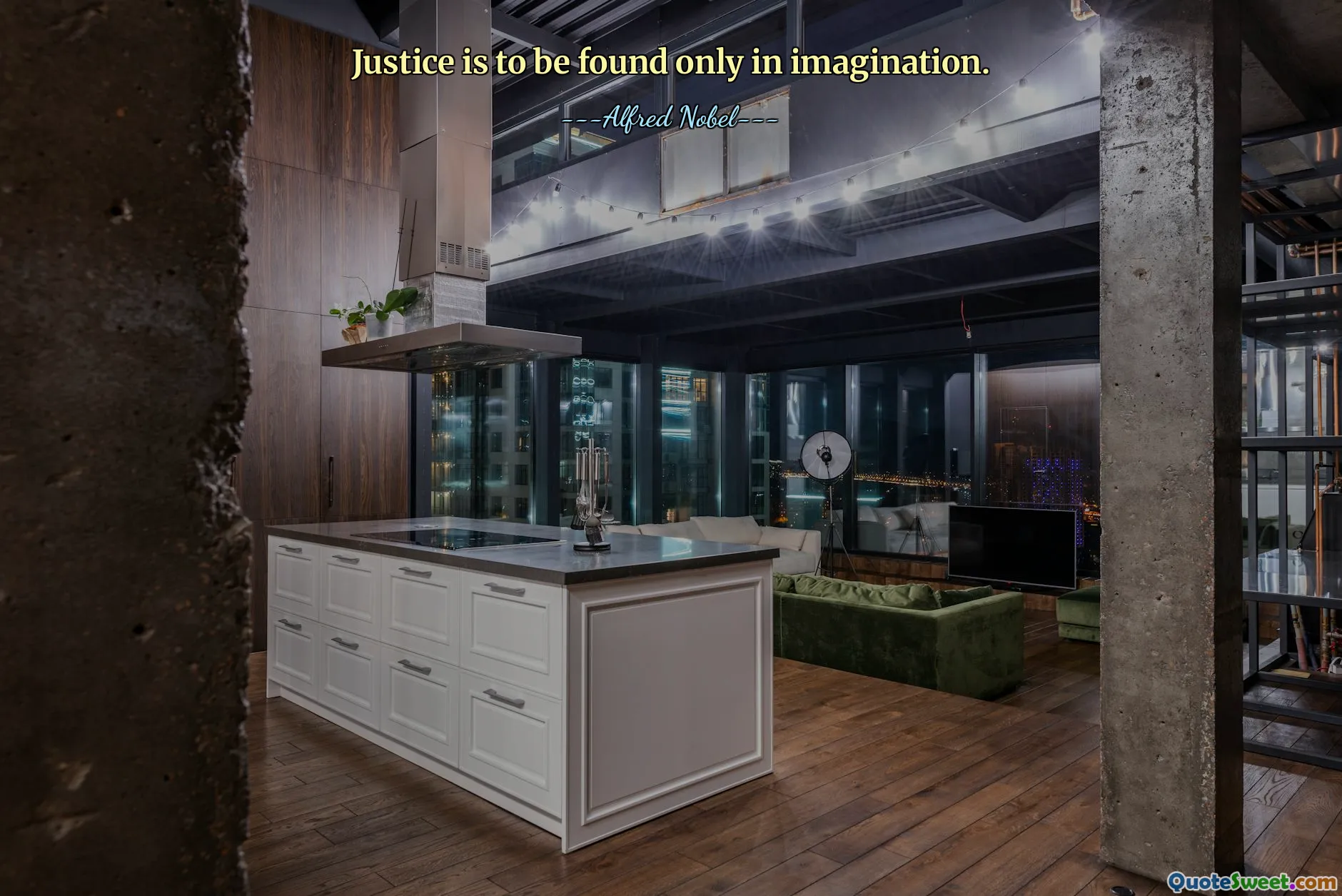
Justice is to be found only in imagination.
The statement, "Justice is to be found only in imagination," poses a profound and somewhat challenging perspective on the concept of justice. It suggests that true justice, an ultimate or perfect form of it, does not reside in the practical world or in imperfections of human societies but rather in the domain of imagination. This does not necessarily imply that justice is unreal or unachievable, but rather that it exists as an ideal, a conceptual vision we strive toward but rarely encounter in its full, pure form.
In reality, justice is often constrained by societal structures, laws, human biases, and institutional limitations. These practical frameworks, while necessary for governance and social order, are seldom flawless in their execution. The notion that justice is found only in imagination encourages us to reflect on justice as a striving ideal rather than a fixed reality. It invites introspection about the gaps between what justice ideally should be and what it actually is in practice.
This perspective can inspire continued efforts to improve our systems and promote fairness and equity. By envisioning a just society in our imagination—unbound by existing inequities, prejudices, or limitations—we create a mental blueprint encouraging innovation and reform. The quote reminds us to keep justice alive and evolving in our thoughts and aspirations, using imagination as a catalyst for social change. It emphasizes that the pursuit of justice is not just about tangible actions but also about the values and ideals we nurture within ourselves and society.
Therefore, seeing justice as residing primarily in imagination urges individuals and communities to persist in dreaming and working for a world where justice can be more fully realized, even if the perfect state remains eternally aspirational.











